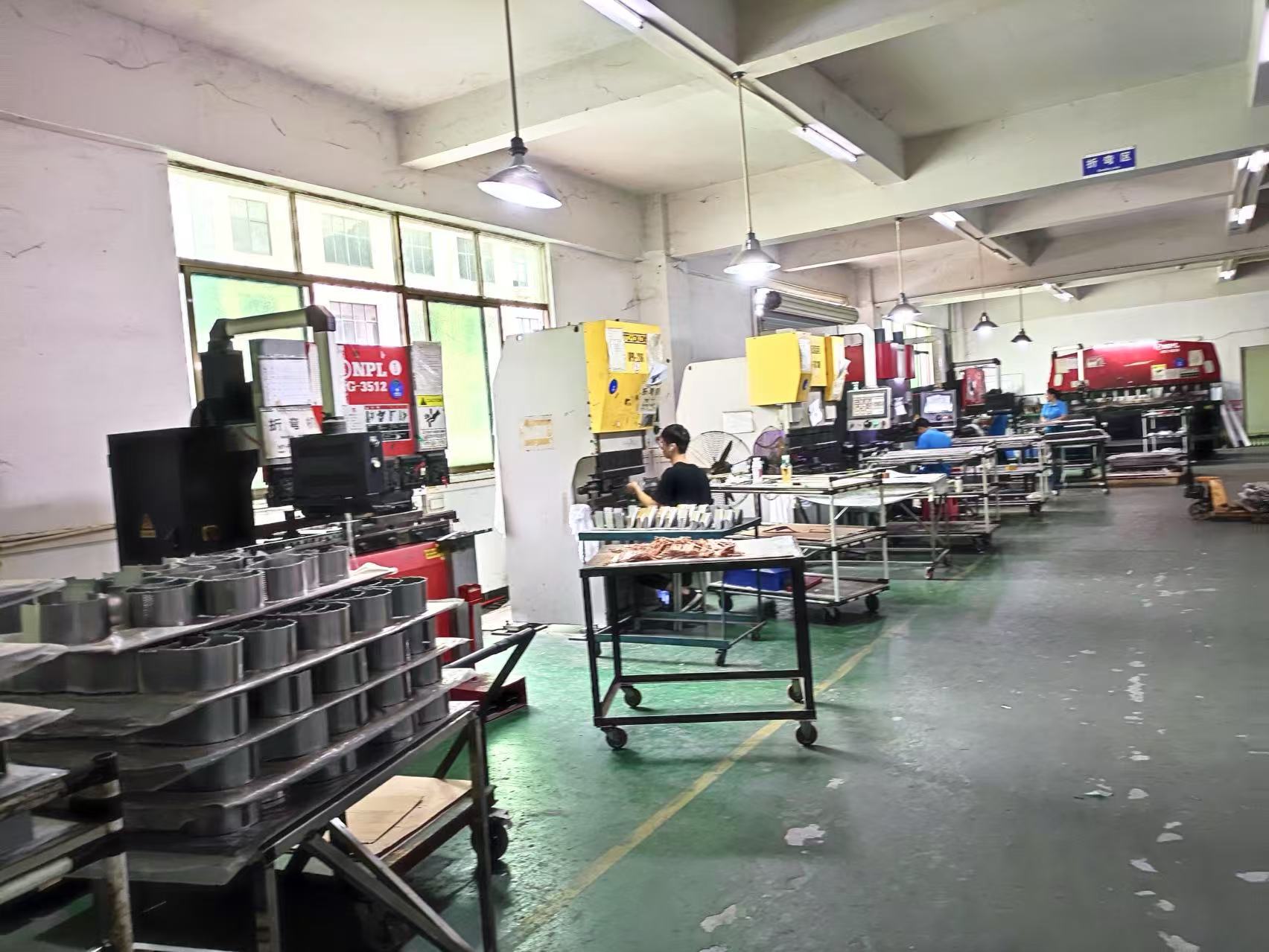In the world of sheet metal fabrication, precision sheet metal bending is a critical process that transforms flat sheets into complex, functional components. At HY Metals, we specialize in producing custom sheet metal parts with exceptional accuracy and quality. With 15 years of experience and advanced manufacturing capabilities, our sheet metal factory is equipped to handle everything from sheet metal prototypes to large-scale production runs. In this article, we’ll explore the technical aspects, equipment requirements, and specialized processes involved in precision sheet metal bending.
Key Technical Considerations in Sheet Metal Bending
1. Material Selection and Thickness:
The type and thickness of the sheet metal significantly impact the bending process. Common materials include stainless steel, aluminum, and carbon steel, each requiring specific tooling and parameters to achieve precise bends without cracking or deformation.
2. Bend Radius and Angle:
The bend radius must be carefully calculated to avoid material stress and cracking. A smaller radius increases the risk of defects, while a larger radius may not meet design requirements. Similarly, the bend angle must be controlled with high precision to ensure the final part fits perfectly in its intended application.
3. Springback Compensation:
Springback, the tendency of metal to return slightly to its original shape after bending, is a common challenge. To counteract this, our technicians use advanced software to calculate and adjust the bending angle, ensuring the final product meets exact specifications.
4. Tooling and Die Selection:
The choice of tools and dies is critical for achieving consistent results. At HY Metals, we use high-quality, precision-engineered tooling to minimize errors and ensure repeatability across large production runs.
Equipment Precision and Parameter Control
Modern sheet metal fabrication relies on advanced CNC press brakes and folding machines to achieve precision sheet metal bending. These machines offer:
- High Accuracy: CNC-controlled systems allow for micron-level precision, ensuring tight tolerances and consistent results.
- Automated Adjustments: Automatic tool changers and back gauge systems reduce setup time and improve efficiency.
- Real-Time Monitoring: Sensors and software provide real-time feedback, enabling immediate adjustments to maintain quality.
At HY Metals, our state-of-the-art equipment is operated by skilled technicians who meticulously control parameters such as pressure, speed, and positioning to deliver flawless custom sheet metal parts.
The Role of Worker Expertise
While advanced equipment is essential, the skill and experience of the operators play a crucial role in precision sheet metal bending. Our team at HY Metals includes highly trained professionals with years of experience in:
- Interpreting complex technical drawings.
- Selecting the right tools and parameters for each job.
- Troubleshooting issues such as material deformation or tool wear.
This expertise ensures that even the most challenging projects are executed with precision and efficiency.
Surface Protection and Avoiding Defects
One of the key challenges in sheet metal bending is protecting the surface from scratches, dents, or creases. To address this, we implement the following measures:
- Protective Films: Applying temporary films to the metal surface during bending.
- Polished Tooling: Using smooth, polished dies to minimize contact marks.
- Controlled Pressure: Adjusting the bending force to avoid over-pressing and surface damage.
These steps ensure that the final product maintains a pristine appearance, which is especially important for visible components in industries like electronics and automotive.
Specialized Bending Processes
In addition to standard bending, HY Metals offers specialized processes to meet unique design requirements:
1. Press Forming (压桥):
This technique creates raised or recessed features in the sheet metal, often used for strengthening or aesthetic purposes. It requires precise control of pressure and alignment to achieve the desired shape.
2. Reinforcement (补强):
Adding ribs or beads to the metal increases its structural strength without adding significant weight. This is commonly used in automotive and aerospace applications.
3. Clearance Bending (避位):
This process involves creating bends that avoid interference with other components, ensuring proper assembly and functionality. It requires careful planning and precise execution.
Why Choose HY Metals for Precision Sheet Metal Bending?
At HY Metals, we combine cutting-edge technology, skilled craftsmanship, and a commitment to quality to deliver exceptional sheet metal fabrication services. Whether you need sheet metal prototypes or large-scale production of custom sheet metal parts, our sheet metal factory is equipped to handle projects of any complexity.
Our focus on precision sheet metal bending, combined with our ability to implement specialized processes like press forming and reinforcement, ensures that we can meet the most demanding requirements. With a dedication to high-quality results and short turnaround times, HY Metals is your trusted partner for all your sheet metal needs.
Conclusion
Precision sheet metal bending is a cornerstone of modern manufacturing, enabling the creation of complex, high-performance components. By leveraging advanced equipment, skilled technicians, and specialized processes, HY Metals delivers custom sheet metal parts that meet the highest standards of quality and precision. Partner with us for your next project and experience the difference that expertise and innovation can make.
For more information about our sheet metal fabrication services, visit our website or contact us today!
Post time: Feb-12-2025



